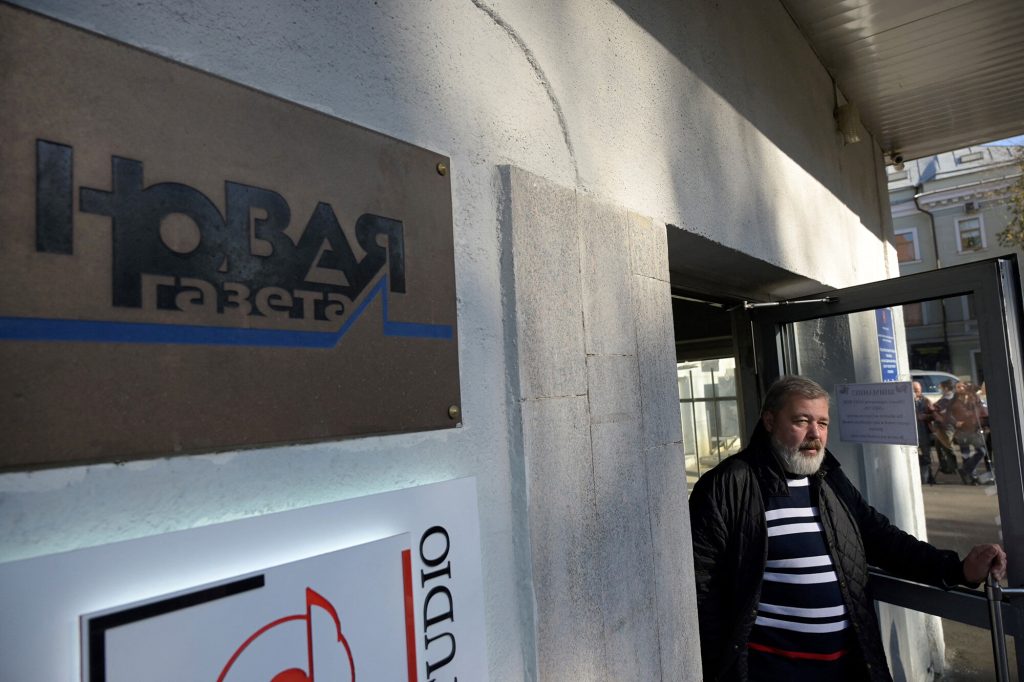Russian newspaper edited by Nobel winner to halt publication after warnings from Moscow

The newspaper’s editorial board said in a statement on Monday that it had received a warning from Russia’s federal media regulator Roskomnadzor after independent journalists conducted an interview with Ukrainian President Volodymyr Zelensky.Novaya Gazeta said it would stop publishing both online and in print, becoming the latest outlet to succumb to a government crackdown on the media that has devastated Russia’s free press and deprived the country’s citizens of accurate information about Moscow’s invasion of Ukraine.It was the second warning the newspaper has received from Roskomnadzor. In early March, Novaya Gazeta said it had removed articles on the war from its website due to the government censorship. Roskomnadzor warned Russian news outlets on Sunday against rebroadcasting or distributing the interview between Zelensky and some of Russia’s most prominent independent journalists.The journalists who interviewed Zelensky were Ivan Kolpakov from Meduza, a website based in Latvia, Vladimir Solovyov of Moscow newspaper Kommersant, Tikhon Dzyadko from recently shuttered channel TV Rain and the prominent writer Mikhail Zygar. Muratov submitted questions ahead of the interview.Muratov helped found Novaya Gazeta in 1993 and has served as its top editor since 1995. He shared last year’s Nobel Peace Prize with Filipino American journalist Maria Ressa for what judges described as their “efforts to safeguard freedom of expression.”The Nobel Committee said that Novaya Gazeta had been highly critical of the Russian government since its inception, including reporting on corruption and the activities of the country’s military. Six of the newspaper’s journalists have been murdered including Anna Politkovskaya, a strident critic of the Kremlin who reported on human rights abuses in Chechnya.Russian authorities have tightened their grip on the country’s media following the invasion of Ukraine. Earlier this month, lawmakers criminalized the spread of “fake” information that discredits the Russian armed forces or calls for sanctions against the country.The crackdown has forced some outlets to shut up shop and their journalists to leave the country. TV Rain and Echo of Moscow, a storied radio station, have both stopped broadcasting.Muratov announced last week that he would auction off his Nobel medal to support Ukrainian refugees. He said he was compelled to do so by the sight of “wounded and sick children” requiring “urgent treatment” following Russia’s invasion of Ukraine, according to a statement.In the statement, Muratov stressed the need for a ceasefire, exchange of prisoners and provision of humanitarian corridors. Over 3.5 million refugees have fled Ukraine, according to the latest update from the United Nations High Commissioner for Refugees.






